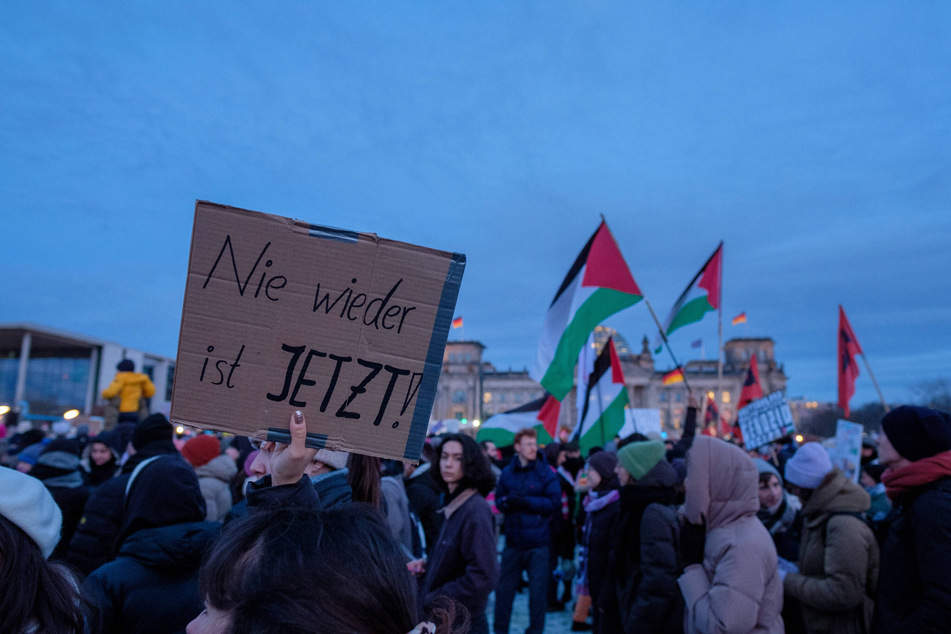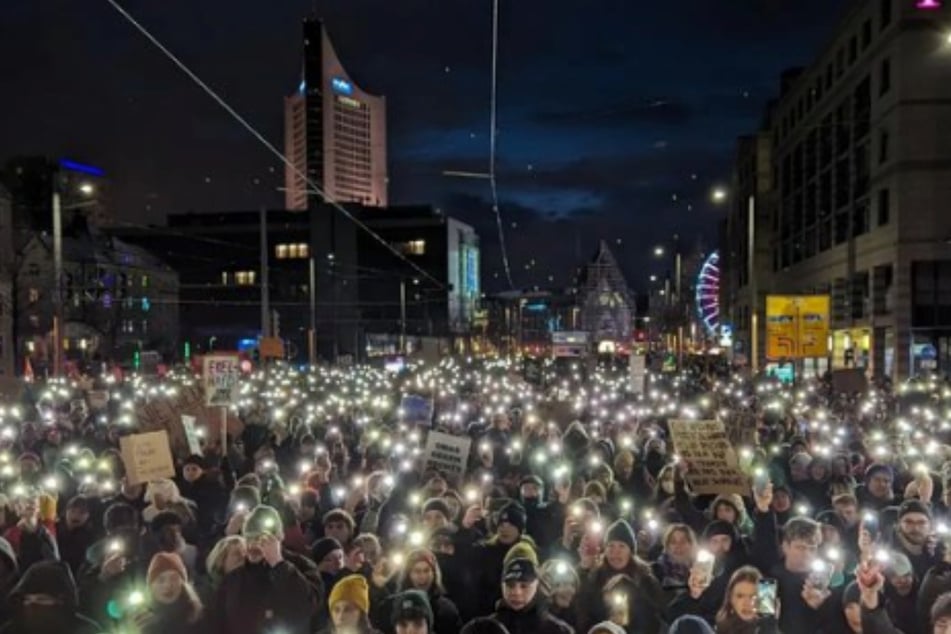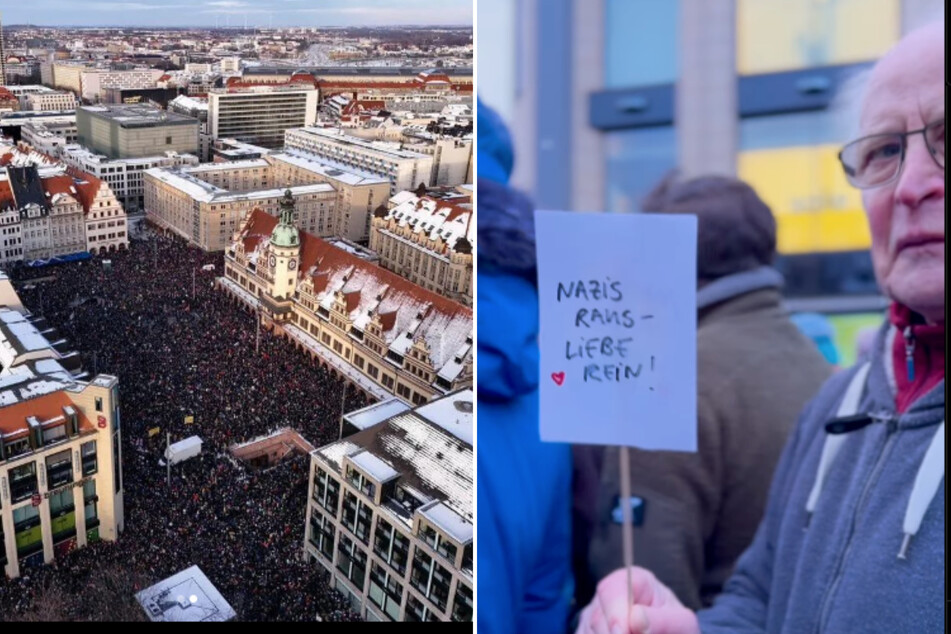Hundreds of thousands take to the streets against the far-right in Germany
Berlin, Germany - Hundreds of thousands joined rallies against Germany's far-right party, the Alternative for Germany (AfD), on Sunday, capping a week-long wave of protests that has seen demonstrators turn out in unusually large numbers across the country.

Over the weekend, there were protests in hundreds of cities and towns across Germany. Organizers, Campact and Fridays for Future, estimate that over 1.4 million people took to the streets to send a "signal against the AfD and the rightwards drift in German society."
There were so many demonstrators in Munich on Sunday that organizers were forced to cancel a planned march and ask people to disperse for safety reasons. Per local police, some 100,000 showed up for the rally, which is four times more than were expected.
Another 100,000 people gathered to protest in Berlin on Sunday evening, according to police figures cited by regional broadcaster RBB.
A January 10 report by investigative outlet Correctiv sparked this wave of mobilization against the far-right party. The report revealed that AfD members had discussed the expulsion of immigrants and "non-assimilated citizens" at a meeting with right-wing extremists.
Among the participants at the talks was Martin Sellner, a leader of Austria's Identitarian Movement, which subscribes to the "great replacement" conspiracy theory that claims there is a plot by non-white migrants to replace Europe's "native" white population.
Far-right AfD party is soaring in the German polls

News of the gathering sent shockwaves across Germany, as the AfD is soaring in opinion polls, just months ahead of three major regional elections in eastern Germany where their support is strongest.
Founded in 2013 as a eurosceptic party, the AfD entered the German Bundestag in 2027. Current polling puts it in second place nationally, as NPR reported.
The anti-immigration party confirmed that its members attended the meeting but has denied its acceptance of the "remigration" project championed by Sellner.
These protests against the AfD and the deportation plan began last weekend in Berlin and Potsdam, where the extremist meeting occurred, and have since gathered momentum.
Demonstrations against the far-right were much larger than execpted
Notably, the protests have spread to smaller towns and cities.
On Sunday, demonstrators in the capital carried signs with slogans such as "No place for Nazis," and waved their phone lights in front of the German parliament.
"It's good that something finally happened, that the silent majority isn't so silent anymore," IT worker Lydia Steffenhagen told AFP at the protest in Berlin.
In Dresden, the capital of the eastern region of Saxony, where the far-right party is leading in the polls, authorities had to alter the course of a protest march to make space for an "enormous number of participants," police said on X, formerly Twitter.
Organizers estimated 70,000 people protested in Cologne, while in Bremen, local police said 45,000 people showed up to demonstrate.
Chancellor Scholz joins demonstrations against the far-right

Politicians, church leaders, and Bundesliga soccer managers have called on people to stand against the far-right.
Chancellor Olaf Scholz, who joined a demonstration last weekend, said any plan to expel immigrants or citizens amounted to "an attack against our democracy and in turn on all of us."
Scholz urged everyone "to take a stand – for cohesion, for tolerance, for our democratic Germany."
Interior Minister Nancy Faeser went so far as to say in the newspapers of the Funke press group that the far-right meeting was reminiscent of "the horrible Wannsee conference," where the Nazis planned the extermination of European Jews in 1942.
The widespread anger following the Correctiv report has prompted renewed calls to ban the AfD.
Cover photo: Screenshot/Instagram/Leipzig nimmt Platz

